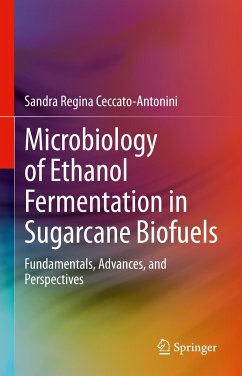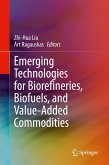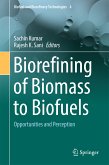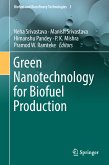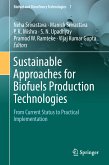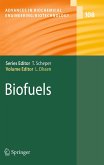This book discusses the microbiology of fermentation for the production of bioethanol from sugarcane. Coverage includes how selected yeasts improve ethanol yield and productivity concerning recent advances at genomic, transcriptomic, and proteomic levels, how microorganisms (bacteria and yeasts) interact with each other in fermentation vats, and the application of microbiological monitoring methods with safety and precision. Special attention is given to antimicrobial strategies used to decrease contamination. The book is aimed at professionals working in the bioethanol industry, as well as students and researchers studying biological and biotechnological aspects of applied matters such as industrial microbiology and industrial fermentations.
The English translation of this book from its Portuguese original manuscript was done with the help of artificial intelligence (machine translation by the service provider DeepL.com). A subsequent human revision of the content was done by the author.
The English translation of this book from its Portuguese original manuscript was done with the help of artificial intelligence (machine translation by the service provider DeepL.com). A subsequent human revision of the content was done by the author.
- Covers common microbiological monitoring techniques;
- Reviews selected yeasts used in the bioethanol industry;
- Examines the role of bacteria and native yeasts in ethanolic fermentation and methods to control their growth.
Dieser Download kann aus rechtlichen Gründen nur mit Rechnungsadresse in A, B, BG, CY, CZ, D, DK, EW, E, FIN, F, GR, HR, H, IRL, I, LT, L, LR, M, NL, PL, P, R, S, SLO, SK ausgeliefert werden.
Es gelten unsere Allgemeinen Geschäftsbedingungen: www.buecher.de/agb
Impressum
www.buecher.de ist ein Internetauftritt der buecher.de internetstores GmbH
Geschäftsführung: Monica Sawhney | Roland Kölbl | Günter Hilger
Sitz der Gesellschaft: Batheyer Straße 115 - 117, 58099 Hagen
Postanschrift: Bürgermeister-Wegele-Str. 12, 86167 Augsburg
Amtsgericht Hagen HRB 13257
Steuernummer: 321/5800/1497
USt-IdNr: DE450055826
Bitte wählen Sie Ihr Anliegen aus.
Rechnungen
Retourenschein anfordern
Bestellstatus
Storno

